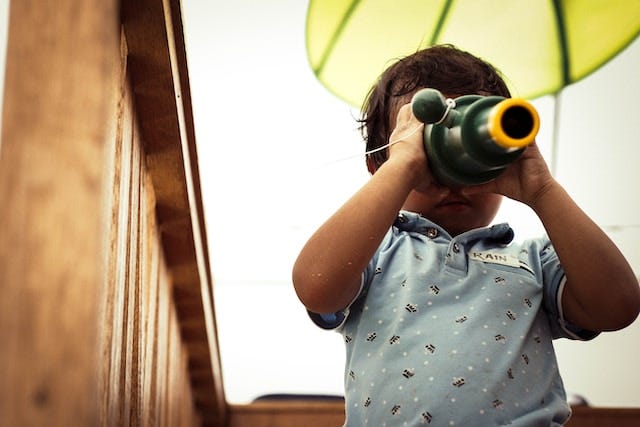Know Thyself: Do You Have Compassionate Curiosity For Yourself?
Taking a learner's posture to who you are becoming
Thank you for reading! Please help me get to 1,000 subscribers in 90 days by subscribing for free to receive new posts & sharing it with others (@173 today 😁)
We are constantly growing, learning new things and changing our behaviors to adapt to new data about the world around us, and boy has the world been changing fast! If we are honest, the changes that occurs in us is not necessarily a linear process. It’s one that probably looks more like this messy middle:
Ultimately, we want to attain a higher level of personal growth and not feel stuck in any area of life. One of the major things that can prevent us from achieving personal growth and not moving beyond the mess is a fixed mindset. A fixed mindset believes if you’re not good at something, you will never be good at it. A fixed mindset believes intelligence, talent, and other qualities are innate and unchangeable. It’s a belief system that is self defeating and rooted in a touch of arrogance because how can you know that you won’t be good at something if you don’t even try?
I wish I could say that I operate from a growth mindset 100% of the time. That would be gnarly! Heck, I don’t even know if I have a growth mindset 50% of the time. A lot of my fixed mindset narrative comes from my upbringing… my mother is Vietnamese. (That was meant to be a racist joke that is unacceptable, but here’s a funny video to further exaggerate stereotypes). I was not raised with much affirmation or encouragement. In fact, my mother is verbally abusive, still. Repeatedly being told you are less than decent (exact wording much harsher), those words become the building blocks for a fixed mindset (check if you have a fixed or growth mindset).
So how does one transition from a fixed mindset to a growth mindset? I’ve found having compassionate curiosity for myself to be a great tool in developing a growth mindset, even whilst encountering verbal negativity.
Compassionate curiosity is to question yourself without attaching judgement
Compassionate curiosity signifies a unique combination of curiosity, openness, acceptance, and love that we can hold on to while we reflect on the thoughts, feelings, and behaviors that make us who we are. - Amy Mills-Guest
Compassionate curiosity can be as simple as asking yourself, “I wonder why I did/said that? Is what I am doing/thinking the best way of coping with this situation or am I acting out from a place of hurt?” Asking is the easy part, the need for courage requires a certain willingness to face yourself.
For instance, I am in a long distance relationship and travel about 5,000+ miles between San Diego and London, ever so often. My life in this season requires me to be between California and the UK not just because of this relationship, but also for business and network. It’s not a horrible lifestyle, but long distance relationships can be challenging to navigate emotionally when you are rarely physically together. If my boyfriend doesn’t video call me at least twice a day, I tend to get insecure, wondering if I am still in his purview and affections. When this insecurity hits real good, I have resorted to passive aggressive behaviors i.e. ignoring him completely. You know… as pay back 🙄 In this scenario, I responded from a place of self inflicted hurt, having no compassion or curiosity for myself or him.
Compassionate curiosity would have compelled me to take a learner’s posture first to myself and then to others. In the scenario above it could have looked like this:
No video calls all day, triggering feelings of insecurity
Ask myself: why do you feel insecure? where does this feeling come from? what else do you feel? do you feel a bit of rejection or abandonment? what are your earliest memories of these feelings? can you bring compassion to that childhood trauma by accepting baby Amy and letting her know that you won’t abandon her?
After the gentle investigation, bring compassion to the emotional needs you discovered
After emotional needs are met, gently investigate why my boyfriend hasn’t called, applying similar compassionate curiosity to him. Could he have had a really busy and stressful day at work? Was there an unexpected issue that has consumed all of his headspace?
Compassionate curiosity is the synonym for gentle investigation. Clinical counselor Amy Mills-Guest shares that “the purpose is not to justify or rationalize, but rather to understand and question ourselves about whether a behavior or attitude is serving the purpose we hope it is serving. We must be willing to become aware of what is really going on for us in a given moment and willing to explore what can be an uncomfortable part of ourselves through gentle investigation.”


As we observe our personal patterns, we can catch our minds when it has gone sour and apply compassionate curiosity before responding. It’s super simple:
Trigger - Something happens that triggers a negative emotion
Pause - Instead of reacting immediately, take a pause to reassess the situation
Curiosity - Pausing gives you the headspace to arouse curiosity, think like a kid
Learn - Take a learner’s posture towards yourself and investigate in a non-judgemental way the WHY questions






